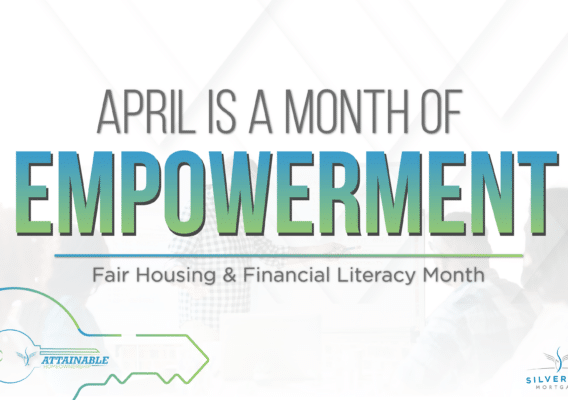Buying a home is a monumental achievement, often one of the largest financial investments of a lifetime. The journey from dreaming of holding the keys to actually buying the home can feel overwhelming, primarily because of the often-comprehensive mortgage process. Understanding how the mortgage process works and the steps involved can significantly reduce stress and empower you to navigate this key part of the home-buying process with confidence. Regardless of what you may have heard, attaining a mortgage can be smooth and painless.
Depending on individual circumstances and market conditions, it can typically take anywhere from 30 to 60 days. Let’s break down each stage, according to us, providing clarity on what to expect and how to prepare for each step.
Phase 1: Pre-Approval – Laying the Foundation
Before you even start house hunting, securing your pre-approval is crucial. This isn’t just a formality; it’s a powerful tool demonstrating to sellers that you’re a serious buyer capable of securing financing. This initial stage involves contacting your Mortgage Loan Originator (MLO) and providing them with a comprehensive overview of your financial situation and the prospective property. They may want to know details such as:
- Property Information: The address of the property, purchase price, and any contingencies in the purchase agreement.
- Personal Information: Social Security number, date of birth, and current and previous addresses.
- Employment History: Details about your current and past employers.
- Declaration of Intent: A statement confirming your intent to occupy the property as your primary residence (if applicable).
- Proof of Income: Pay stubs, W-2s for the past two years, and tax returns if self-employed.
- Asset Verification: Bank statements, investment account statements, and any other documentation that proves you have sufficient funds for a down payment and closing costs.
- Credit Report: The lender will pull your credit report to assess your creditworthiness. Review your own report beforehand to identify and correct any inaccuracies.
Remember, pre-approval is not a guarantee of final loan approval; it’s an estimate based on preliminary information.
Phase 2: Submit Initial Documents
Once you’ve found a home, it’s time to apply for the mortgage. This step involves providing your MLO with even more detailed information and documentation to find the best loan program for you. For most, you can expect to complete a formal loan application, which can include:
- Updated Proof of Income, Asset Verification, and Credit Report: Depending on how long the process has taken, you may need to provide updated statements in order to have the most accurate information before you go under contract.
- Identification: Driver’s license, passport, or other government-issued ID.
Your MLO will analyze this information, assessing your credit score, debt-to-income ratio (DTI), and overall financial health. When you’re pre-approved, they will issue a pre-approval letter, stating the maximum loan amount you qualify for. This letter is valid for a specific period, typically 60-90 days. This marks the official start of the loan processing timeline.

Pro Tip: Gather all required documentation upfront to avoid delays and surprises. Respond promptly to any requests from the lender.
Phase 3: Processing
This phase is where the processor meticulously combs through and verifies all the information provided in your application and supporting documentation. The loan processor will order an appraisal of the property to determine its fair market value and ensure it aligns with the purchase price. They will also conduct a title search to uncover any liens or encumbrances on the property. They may request additional documentation or clarification on certain aspects of your application.
Key Activities in the Processing Phase:
- Appraisal: A professional appraiser will visit the property and provide an independent valuation.
- Title Search: A title company will research the property’s ownership history to ensure there are no legal issues.
- The Process: The processor will then review, package, and monitor the file.
- Giving the underwriter all required items for filing
Be prepared to answer questions and provide additional documentation promptly. Any delays in responding can significantly extend the processing timeline.
Phase 4: Underwriting – The Final Verdict
Following the processing phase, the loan application is sent to underwriting for a final review. The underwriter will assess all the documentation collected, from your credit report and income statements to the appraisal and title search. They’re looking for anything that could potentially jeopardize your ability to repay the loan. If everything checks out, the underwriter will issue a conditional approval. This means the loan is approved, subject to meeting certain conditions, such as providing additional documentation or clarifying specific aspects.

Pro Tip: Don’t make any major financial changes during this phase, such as opening new credit accounts or making large purchases. These actions can negatively impact your credit score and threaten your loan approval.
Phase 5: Pre-Closing – Loan Approval
Once all the conditions outlined in the conditional approval are met, the lender will issue a final loan approval. This is a significant milestone, displays your ability to repay the loan. You’ll receive a loan commitment letter, which outlines the terms of the loan, including the interest rate, loan amount, repayment schedule, and closing costs.

Pro Tip: Carefully review the loan commitment letter and ask your MLO to explain any terms you don’t understand.
Phase 6: Closing
The final stage is the closing, where you officially sign all the loan documents and become the owner of your new home! A closing agent or attorney will facilitate the process. You’ll need to bring a certified check or wire transfer for the down payment and closing costs. Be prepared to carefully review and sign numerous documents, including the mortgage note, deed of trust, and closing disclosure.
Key Activities in the Closing Phase:
- Final Walk-Through: Conduct a final walk-through of the property to ensure it’s in the agreed-upon condition.
- Document Signing: Review and sign all the loan documents.
- Funding: The MLO will transfer the loan funds to the seller.
- Recordation: The deed is recorded with the local government, officially transferring ownership to you.
Review the closing disclosure carefully to ensure all the fees and costs are accurate. Ask questions if anything seems unclear.
Factors That Can Impact the Timeline
While the above timeline provides a general overview, several factors can influence the length of the mortgage process:
- Market Conditions: Difficulty finding a prospective home could slow down the process.
- Your Responsiveness: Promptly providing requested documentation can expedite the process.
- Property Issues: Complex title issues or problems identified during the appraisal can cause delays.
Staying Ahead of the Game
Navigating the mortgage process can be challenging, but being proactive and organized can significantly reduce stress and ensure a smooth experience. Here are a few tips to help:
- Start Early: Begin the pre-approval process well in advance of your anticipated home-buying timeline.
- Get Organized: Gather all necessary documentation and keep it readily accessible.
- Communicate Openly: Maintain open and honest communication with your dedicated MLO.
- Ask Questions: Don’t hesitate to ask questions about any aspect of the process you don’t understand.
- Be Patient: The mortgage process can be time-consuming, so be prepared for potential delays.
By understanding the mortgage process timeline and each step involved, you can navigate this journey with confidence and successfully attain your homeownership dreams. Remember to stay organized, communicate effectively, and seek professional guidance. At Silverton Mortgage, we will ensure that every step of the process is as stress-free and simple as possible. Speak to one of our MLOs today to jump start your homebuying adventure!
You Might Also Like

The Foundation of Well-being: How Homeownership Builds More Than Just Equity

April: The Month of Empowerment

